Thermal-Fluid Systems, Aerodynamics, Energy
Research is being conducted on the application of machine learning and digital twin technologies to enhance efficiency in thermal and fluid systems. These efforts contribute to the literature by focusing on the machine learning-based optimization of thermal systems. In the field of hydro energy, studies and projects are carried out with an emphasis on the digitalization of hydroelectric power. Our team provides consultancy services for the rehabilitation of the Sarıyar Hydroelectric Power Plant.
In the area of aerodynamics and flow control, both experimental and numerical investigations are actively pursued. Furthermore, consultancy services are offered to the defense industry in topics related to fluid mechanics and aerodynamics, particularly within the fields of aerospace and mechanical engineering.
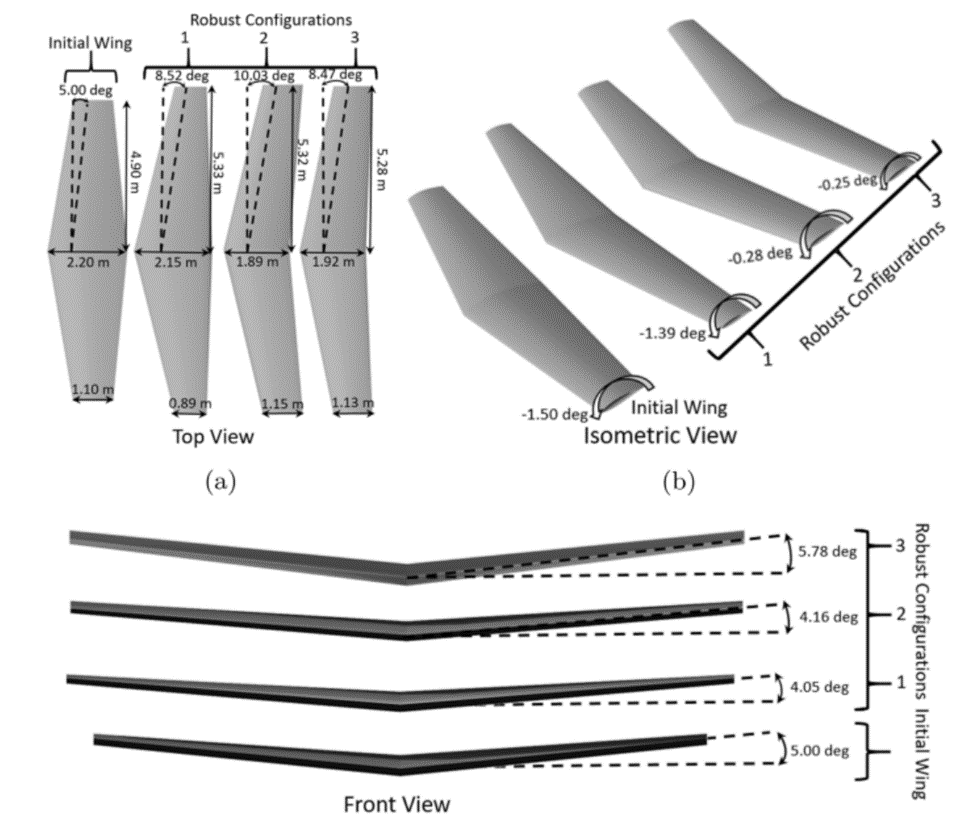
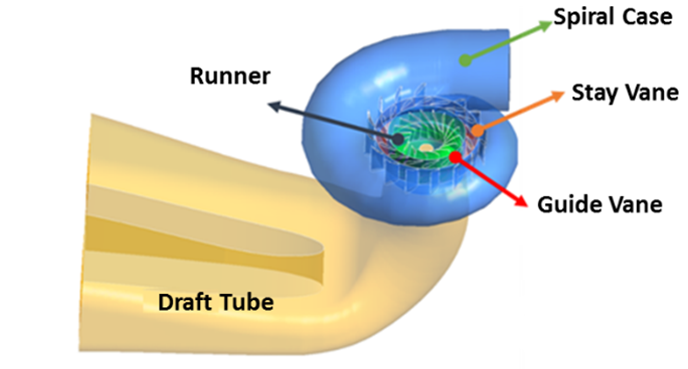
Our department conducts research in the fields of energy systems, aircraft, and aerospace propulsion. In the area of Computational Fluid Dynamics (CFD), open-source software is being developed, and commercially licensed tools such as ANSYS and Star-CCM+ are actively utilized.
Researchers
Prof. Dr. Selin Aradağ Çelebioğlu
Asst. Prof. Dr. Sıtkı Uslu
Asst. Prof. Dr. Onur Baş
Ph.D. Students
İsmail Ozan Sert
Mehmet Erdemli
Ali Alperen Özkan
Aslı Beril Ejder
Gökhan Şahin
Semra Gümrük Tokgöz
Burak Cenik
M.Sc. Students
İsmail Ozan Sert
Zeynep Melisa Koç
Yasin Çakır
Onur Alp Demiral
Beyza Başoğlu
Barkın Özler
İrem Doğan (Türk Traktör)
Karam Adel Kamal Abhary
Yusuf Aydın
Şafak Akgünlü
Oğuz Kaan Sevinç
Muhammed Emin Ural
Merthan Kılıç
Mert Emir Avcı
Mert Durmaz
Kutluhan Kutlu
Emre Sayak
Efe Karabey
Ali Alper Türkarslan
Abdullah Emir Taş
Damage Detection Models
Damage detection models are used to predict potential issues in materials such as stainless steel, aluminum, and CFRP used in the defense industry and in the joining of these materials. Mechanical tests determine joint strength and failure loads, and various microscopic analyses are conducted. These models are implemented numerically in ABAQUS software using the subroutine method.

At TEDU, we are working on researching and developing new damage detection models. In our completed TEDU-BAP project, we investigated the stress wave propagation method in metallic materials with different damage modes. The damage model obtained from various experiments conducted at TEDU as part of the ongoing TÜBİTAK 3501 project is in the process of being published in high-impact journals. Additionally, our team contributes as researchers to two other ongoing projects at TEDU.
Researchers
Dr. Ata Khabaz-Aghdam
Students
Beril Arıkan, TEDU M.Sc. 2023
Bahman Paygozar, TEDU M.Sc. 2021
Fatih İbrahimoğlu, TEDU B.Sc. 2024
Selin Özcan, TEDU B.Sc. 2023
Related Courses
ME 224 Design and Manufacturing
ME 441 Finite Element Analysis
ME 546 Composite Materials
Biocompatible Composites and Multiscaled Materials
Biocompatible composites and multiscaled materials are based on multiscale production methods from nano to macro scale, inspired by the hierarchical structures in nature. The goal is to achieve superior mechanical properties by mimicking the structural complexity of natural materials, such as bone.

Projects conducted at the TEDU Multiscaled Composites Laboratory include green composite production, coatings and thin films, atomic force microscopy/lithography, and material properties at decreasing scales. TÜBİTAK and TEDU-BAP projects have been completed. In the TÜBİTAK 3501 project, a bone implant prototype material was developed with a focus on hierarchical composite production, resulting in a patent application and several high-impact journal publications. Completed TEDU-BAP projects focused on green material production methods and nanocomposites. Our laboratory contributes as researchers to two TÜBİTAK projects at TEDU and participates in European Union COST actions.
Researchers
Students
Serhat Çelik, TEDU M.Sc.
Berfin Dolunay Karaçay, TEDU M.Sc.
Fatma Dönmez, Hacettepe University M.Sc. 2022
Azca Sajid, TEDU B.Sc. 2024
Muhammad Ali Khan, TEDU B.Sc. 2024
Arda Baytaroğlu, TEDU B.Sc. 2020
Mert Utku, TEDU B.Sc. 2020
Related Courses
ME 446 Fundamentals of Composite Materials
ME 447 Nanomaterials and Nanotechnology
ME 546 Composite Materials
Human-Robot Interaction
Human-robot interaction is a contemporary technology field involving the development of robotic systems that coexist and work with humans, encompassing disciplines from engineering to psychology, software to neuroscience. In addition to traditional industrial robots, these systems include robots used in surgery and rehabilitation in the health sector, interactive educational simulators, increasingly common cleaning robots, and even autonomous vehicles designed for human interaction.

At TEDU, we conduct academic research on the design of functional robotic systems that can interact safely with humans in education, simulation, and rehabilitation applications. We collaborate with industrial companies focusing on this rapidly growing sector. In recent years, we have been involved in three TÜBİTAK-supported industrial projects and completed a TEDU-BAP research project.
Researchers
Students
2023 - Ali Seçkin Kaplan, TEDU M.Sc.
2020 – 2023 Selin Nur Özsert Duran, TEDU M.Sc. (PhD student at Universita di Siena)
2022 – 2023 Ali Seçkin Kaplan, Barkın Özler, Yasin Çakır, TEDU B.Sc.
2022 Ömer Çağrı Ergin, Ekin Kılcıgil, Tolga Fazlıoğlu, TEDU B.Sc.
2020 B. Ulaş Bingöl, Bircem Ataselim, M. Deniz Can, H. Mert Dedebeyoğlu, TEDU B.Sc.
Human Body Modelling and Computer Simulation of Human Motion
When we walk or do our daily activities, we move without thinking about our motion. But how do we move? How do we do certain movements and what are our physiological capabilities? To answer these types of questions we study Biomechanics, in particular motion analysis. According to the nature of the problem, we develop musculoskeletal models of human body – a model including hard (bones) and soft (muscle-tendon) tissues. In our studies, we mainly use principles of Robotics and Anatomy. In short, we try to express physiological movement of the body in a mechanical perspective.
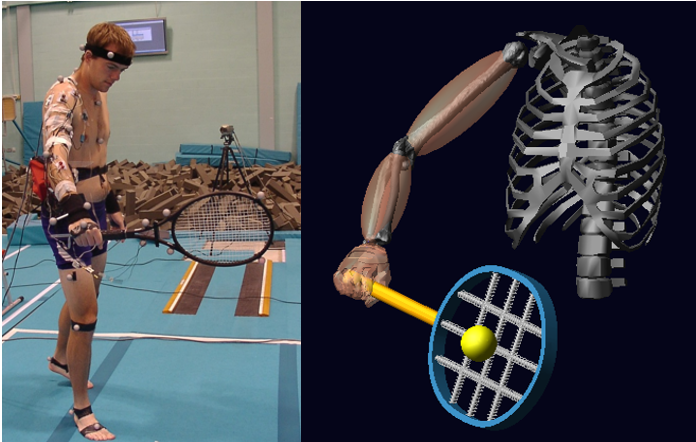
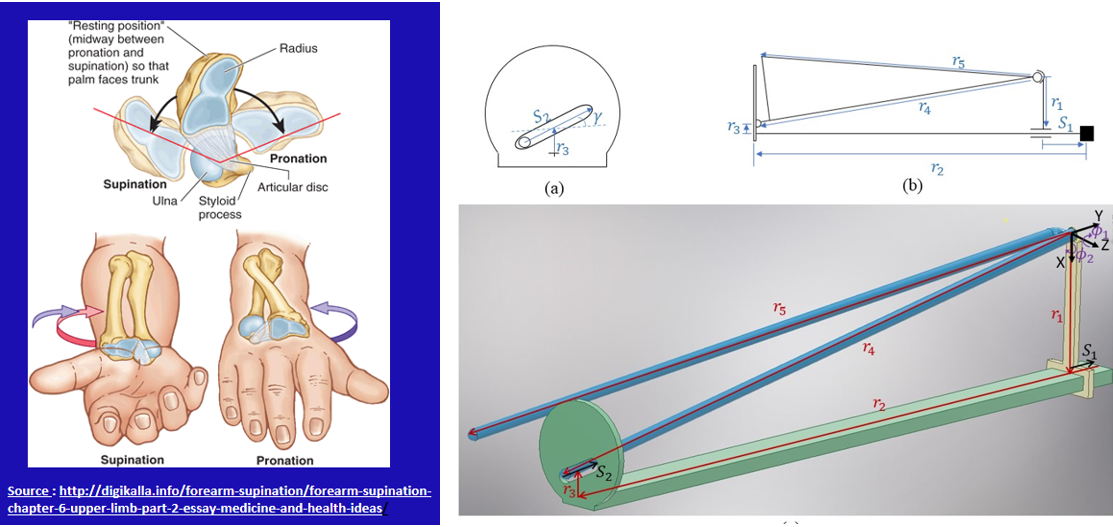
Motion analysis is used in different areas including clinical studies (operation planning, rehabilitation, prosthesis, etc); sports science (performance improvement, injury prevention); arts (movies and video games).
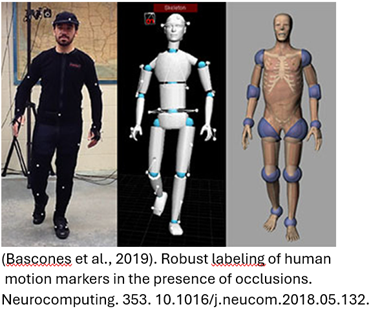
Researchers
Dr. Behzat Bahadır Kentel
Dr. Senih Gürses (METU, Engineering Sciences)
Ph.D. Students
Mehmet Öksüz